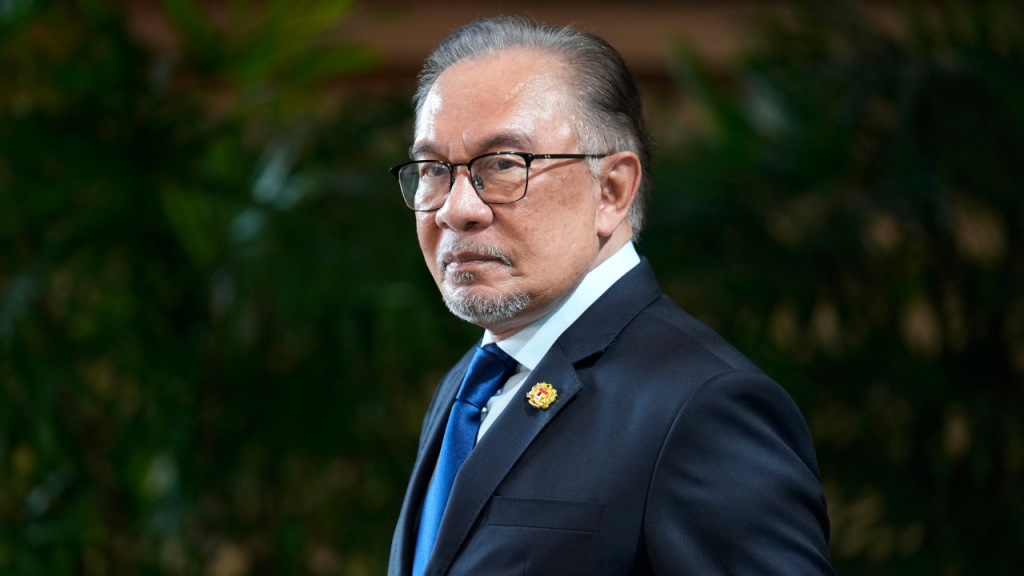Malaysian Prime Minister Anwar Ibrahim emphasized his country’s desire to maintain strong ties with both China and the United States while attending an annual conference in Tokyo. He highlighted the importance of engaging with China as it grows economically and militarily, emphasizing that Beijing is too important to ignore. Anwar also expressed hopes for China and the U.S. to resolve their differences, urging the U.S. to abandon protectionism and respect competitiveness. He later met with Japanese Prime Minister Fumio Kishida to further strengthen cooperation in areas such as maritime security, energy transition, cyber security, and supply chain resilience under their comprehensive strategic partnership.
Anwar’s stance on maintaining relations with both China and the U.S. was evident as he rejected any “China-phobia” policy and emphasized the importance of engaging with China for Malaysia and the region. Despite existing ties with the U.S., Japan, and South Korea, Anwar highlighted the benefits of continuing engagement with China, which he views as a key neighbor. He also underscored the need for the U.S., as an important ally, to respect competitiveness and cooperate with China for regional stability. Anwar’s approach seeks to strike a balance between the interests of both superpowers while advancing Malaysia’s relationships.
The Malaysian Prime Minister also addressed the ongoing conflict between Israel and Hamas, calling for a ceasefire and criticizing the U.S. for not using its influence to end the killings in Gaza. Anwar defended his meeting with Hamas leaders in Qatar, explaining that his intention was to address the humanitarian crisis in Gaza rather than promote terrorism. He reiterated his support for a peaceful resolution and the two-state solution to ensure lasting peace in the region. Anwar’s engagement with the Israeli-Palestinian conflict reflects his commitment to advocating for peace and stability in the Middle East.
Amid escalating tensions in the Asia-Pacific region, Anwar’s meetings with Japanese and Chinese leaders underscore Malaysia’s strategic position and efforts to enhance cooperation. Japan, a key ally of the U.S., is wary of China’s growing influence and has deepened ties with ASEAN countries to counterbalance Beijing’s activities in the South China Sea. Anwar’s discussions with Japanese Prime Minister Kishida focused on strengthening bilateral cooperation across multiple sectors, signaling a commitment to regional security and economic resilience. Malaysia’s diplomatic engagement with Asian powers reflects its efforts to navigate the complex geopolitical landscape while advancing its national interests.
Anwar’s diplomatic outreach and advocacy for peaceful resolutions to conflicts reflect Malaysia’s stance as a moderate and pragmatic player in regional affairs. His calls for China and the U.S. to address their differences and respect competitiveness highlight the importance of multilateral cooperation for regional stability. By engaging with key stakeholders such as Japan and China, Anwar’s leadership seeks to foster strategic partnerships that benefit Malaysia and contribute to peace and prosperity in the wider region. As geopolitical tensions continue to evolve, Malaysia’s approach to maintaining a delicate balance between major powers reflects its commitment to fostering dialogue and cooperation for mutual benefit.
In conclusion, Malaysian Prime Minister Anwar Ibrahim’s statements at the Nikkei annual conference in Tokyo underscored his country’s commitment to engaging with China, the U.S., and other key players in the region. Anwar’s emphasis on maintaining strong ties with both superpowers while advocating for peace in conflict zones demonstrates Malaysia’s diplomatic efforts towards stability and cooperation. By balancing relationships with China and the U.S., as well as other regional allies, Malaysia under Anwar’s leadership is poised to navigate complex geopolitical challenges and advance its national interests in a rapidly evolving global landscape.


